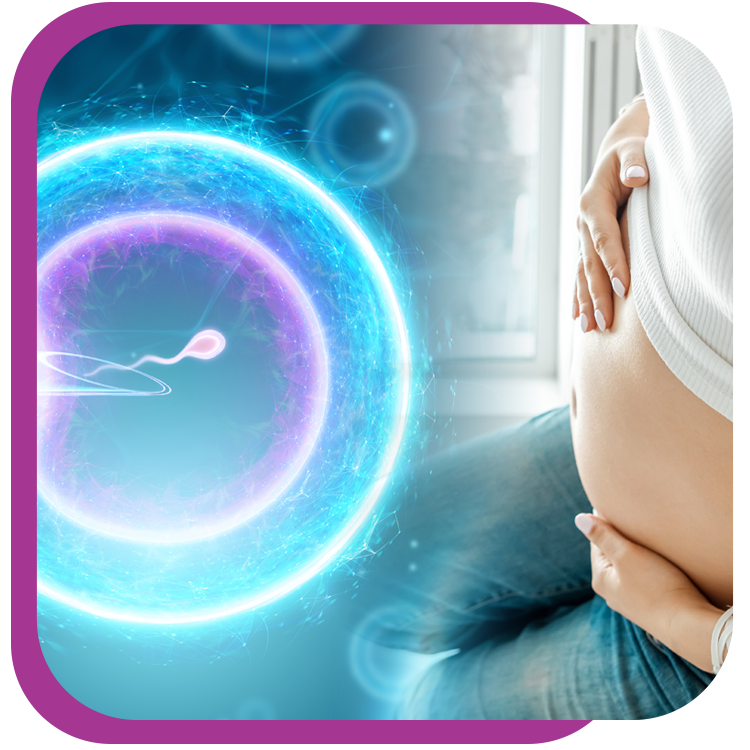Test Tube Baby
Test Tube Baby at Ojas Hospital

What is IUI?
Intrauterine Insemination (IUI) is the process by which the semen of the husband is processed in the laboratory and good quality sperms transferred inside the uterus of the wife at the time of ovulation.
IUI is done if the couple is not able to conceive with the above-mentioned methods, the husband has problems in semen analysis, or the couple has problems in having intercourse due to erectile dysfunction or other reasons.
If a couple can not achieve pregnancy even after doing more than 5 IUI cycles, should definitely think about more advanced fertility treatment.
What is IVF?
In-Vitro fertilization, is fertilisation of egg and sperm outside the human body, culturing embryos in highly advanced incubators, and transferring embryos inside the uterus of a wife.
To start with, a woman is given hormonal injections every day starting from 2/3 rd day of the period, ultrasonography(USG) is done to monitor the growth of follicles(eggs).on approximately 10th day of injections when follicles are ready, trigger injection is given. After 34 to 36 hours after injection, the procedure of oocyte retrieval is done.
What is Oocyte retrieval?
Oocyte retrieval or OPU is a process done under anesthesia.34-36 hours after trigger injection, inside the operation theatre, a small needle is passed from the vagina, under our guidance, all the eggs are aspirated and transferred to the embryologist under strict temperature control and highly advanced media which is good for the delicate oocytes or eggs.
What is IVF?
Once oocyte retrieval is done, eggs are kept in an incubator for some time for maturation, after that one egg is placed surrounded by a certain number of sperms and allowed to get fertilized inside Incubator. Incubators are highly advanced boxes where all the internal environment is maintained exactly the same as that in fallopian tubes like temperature, the concentration of various gases, PH, also the media where games are placed has all the necessary nutrients, micronutrients, and hormones similar to that in fallopian tubes.
What is ICSI?
Intra Cytoplasmic Sperm Injection is an even more advanced technique, wherein a single egg is taken and under high magnification and under a very much controlled environment, a single sperm is injected directly inside the egg, and allowed to get fertilized inside the incubator.
Embryo development:
After insemination is done, embryos are kept in an incubator. Fertilization does not happen instantly, over the period of 4-6 hours, male and female pronuclei are formed carrying 23 number of chromosomes, and gradually, they unite to form a set of 36 chromosomes. Fertilisation check is done after 16 to 18 hours. At this point, embryos are in the pronuclear stage (PN) stage. Not all the eggs which are inseminated, get fertilized. The percentage of fertilization depends upon the quality of gametes (egg and sperm).
On day second after insemination, embryos are in the cleavage stage,i.e 2-4 cell stage on day 2 and 6-8 cell stage on day 3. The number of cells increases by division and on day 4, embryo becomes a ball of cells which is called Morula.
After that, rearrangement of cells happens and a well-formed embryo is ready which is called Blastocyst.
Not all embryos which are fertilized become blastocysts. There is a natural selection of the best ones. Grading of embryos is done depending upon the quality, and then only good quality embryos are either transferred or frozen depending upon the clinical situation, and the rest are discarded.
We at Ojas, prefer blastocyst transfer as we have a well-equipped embryology laboratory and experienced embryologists. In some cases, however, we may have to do an embryo transfer on day 3.
Embryo transfer:
Once embryos are formed, we either transfer the embryos inside the uterus of a woman or freeze all the embryos and transfer them in the next cycle depending upon the hormonal level of the woman and the status of the endometrium.
If we freeze all the embyos9Freeze all cycle), some medicines are prescribed to woman. Once she gets her next period, medicines are given to prepare her endometrium. Once the endometrium is ready to accept the embryo, Embryo Transfer is done.
Embryo transfer is simple but needs good experience to increase the success rate. Anesthesia is not required for it. The patient is kept admitted for a few hours after embryo transfer and then can be discharged.
Are you pregnant?
Once embryo transfer is done, medicines are prescribed for the period of 15 days. After 15 days, an early morning urine test or blood test (beta HCG) is done to find out the result.
If the result comes positive, the doctor will prescribe you medicines for support of pregnancy and ultrasonography to be done after a week.
If the test comes negative, the doctor will advise stopping medications and you will get your periods.
Success Rate??
Not all IVF cycles get a positive pregnancy test. The worldwide success rate of IVF varies from 40-70% depending upon various factors like age of the female, quality of eggs and sperms, quality of embryos, quality of endometrium, and many more things.
We at OJAS, continuously try to get the best results by using the best available technologies, experienced doctors and staff, and individualized treatment protocols which suit you best depending upon your profile.
Call Us Today for Consultations
Haweli, 730/01, Plot No. 2, Bakori Road, Opp BJS Foundation Wagholi, Tal, Dist, Pune-412207
